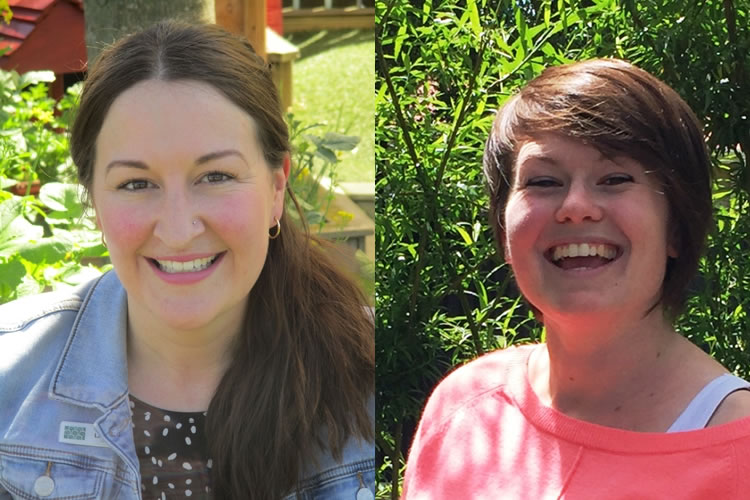Environmental action at Renwick Kindergarten
Published on Wednesday, 17 November 2021
Last updated on Monday, 15 November 2021

More than 400 early childhood education (ECE) services are part of the Enviroschools environmental action programme, and Renwick Kindergarten is a sterling example of what can be achieved when educators, tamariki, whānau and the wider community band together to go green.
Renwick Kindergarten has achieved Green-Gold status in the Enviroschools programme and has done lots of things to show its care and commitment to our planet.
Their work isn’t finished yet, though! Enviroschools has recently added a new Excellence award level, which Renwick Kindergarten has its sights set on.
To see how they’re thinking globally, acting locally, and educating young eco-warriors, let’s hear from two of Renwick’s teachers, Kate McVie and Alice Lammas.
What inspired you to join the Enviroschools programme, and what does it mean to have Green-Gold status?
At Renwick Kindergarten (Te Kōhungahunga ō Renwick), our teaching team are all passionate about looking after papatūānuku (the land), and intentionally provide learning opportunities for our whānau and tamariki to build an authentic and meaningful relationship with the wider world.
As part of the Enviroschools programme, we’re committed to a long-term, holistic sustainability journey, and are focused on creating a healthy, peaceful, sustainable world by learning and taking action together.
We’ve moved through three stages of the journey – Bronze, then Silver, then Green-Gold status – and this means that sustainability is part of all our decisions and everything we do. We’ve made a positive improvement to our environment and feel really connected to it. It’s a great feeling!
What enviro-friendly practices and features do you have at Renwick Kindergarten?
We are incredibly lucky that our Kindergarten whānau are on-board with supporting and enriching our sustainability journey – together we believe we can collectively make positive changes for the future.
We encourage our whānau to practice low/no rubbish lunchboxes, through making easy, cost-effective and sustainable alternatives to single-use plastics. We offer beeswax wraps (which are made by our whānau group as a fundraiser) and have switched to reusable containers and drink bottles – with an emphasis on ‘reduce, reuse, recycle.’
Building relationships with the natural environment is woven throughout our programme, which is supported by our bi-cultural curriculum, Te Whāriki.
Atua such as Papatūānuku (the Earth Mother), Ranginui (the Sky Father), Tāwhirimātea (the God of weather) and Tāne Mahuta (the God of the forest) are given much deserved respect, and we support tamariki to view the natural world as a living, breathing persona.
We collect our rainwater from Ranginui with water tanks for the tamariki to use in their play and to water the garden.
There’s also a focus on reinvesting the money we make from fundraising into sustainable practices and resources, such as installing 20 solar panels this year, installing a low-energy, low-water consumption washing machine, and purchasing two tumbling compost bins which are incredibly time-efficient, and nourish our mara kai (veggie gardens).
We also have a number of well-established worm farms, which the tamariki help to care for, and the excess worm tea is offered to our whānau to support their gardens at home, too.
We have a number of recycling bins which our whānau kindly take into town to the recycling centre regularly.
And, of course, we are proud kaitiaki (custodians) of Rousehill Reserve – a local green space where we often visit, care for the plants, and hope to hold more celebrations in the future.
How does a ‘green’ ethos benefit your children?
The teachers at Renwick Kindergarten all have both individual and collective pedagogy that fits with the kaupapa of Enviroschools.
The Enviroschools guiding principles inspire and lead all of our environmental practices with a focus for sustainability, and the five principles are:
- Empowered students
- Sustainable communities
- Learning for sustainability
- Māori perspectives, and
- Respect for the diversity of people and cultures.
Building an awareness around the importance of kaitiakitanga (guardianship and protection), we hope to support children to develop a life-long love of, and respect for, the environment.
Connections with the natural environment, and ways we can care for it, strengthen links with whakapapa, spiritual awareness, gratitude and mindfulness.
We think spending time in the natural environment is great for the mind, body and soul, and recognise that, ‘The land was not given to us by our ancestors, it was loaned to us from our grandchildren.’
This is all really inspiring. What does Renwick Kindergarten hope to achieve next?
As part of being awarded Green-Gold status – which at the time was the highest award you could get – we were asked ‘Where to now?’
We didn’t want to stop our journey, as there’s more to be done – not just for now, but looking toward a sustainable future for our Kindergarten and the wider Renwick community.
We will continue to look after Rousehill Reserve, and plant more fruit trees there. We’d also really love to work further with the council to get rubbish bins and a toilet installed, so the Kindergarten and community can visit for longer stretches of time and enjoy special events in our special green space.
This, we hope, will be part of how we obtain the new Excellence award.
Stay tuned!
Related Articles

Teach your child to care for the environment
Teaching our children to treat Mother Earth with love and respect.

The far-reaching benefits of kindergarten
NZ Kindergartens CEO Jill Bond describes the many advantages for children and families of kindy settings.

Research: How play environments impact child health
New research demonstrates the effects of built environments on activity and obesity levels among preschool aged children and how nature play boosts activity levels.
